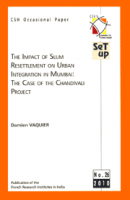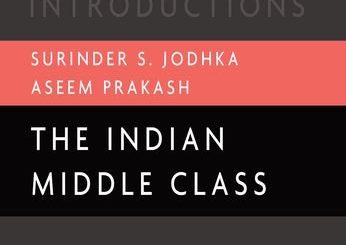[Workshop] CSH-CPR urban workshop on “The Urban Landscape of Love and Marriage: A Study of the Middle Class in Delhi”, by Parul Bhandari
The ideals of love, romance, and choice marriages are increasingly associated with city dwellers, and more specifically with the so-called progressive, modern, ‘neoliberal’ middle class. This talk deconstructs and unpacks these categories and ideals, posing the poignant questions of what it means to be middle class in Delhi? More specifically, this talk examines the construction of middle class identity by young professionals in Delhi, through their experiences of romance and criteria for selection of a spouse. The first part examines the changing landscapes of urban Delhi – coffee shops, restaurants, leisure spaces, and describes the specific ways in which these spaces enable a middle class identity. The second part of the talk focuses on the ideals of being middle class. In that, it elucidates the way these ideals are appropriated by both the section of the middle class that ‘belongs’ to Delhi and those who have migrated to Delhi to acquire higher education and better professional opportunities. This talk then explains the construction of middle class identity in experiences of romance and matchmaking in the urban space of Delhi.
Parul Bhandari is a Post-doctoral Fellow with the Centre de Sciences Humaines, (CSH), New Delhi, the French National Research Centre (CNRS) on South Asia. In 2015, she was Guest Lecturer at the Department of Sociology, Delhi School of Economics and Guest Faculty at the Human and Social Sciences (HSS) division at IIT, Delhi. Bhandari completed a PhD (2014) on the processes of spouse-selection of middle class India, from the Department of Sociology, University of Cambridge. Her current research project is on elite housewives of India. Her areas of interest include marriage and kinship, social stratification, social meanings of money, and gender performances in contemporary India.








